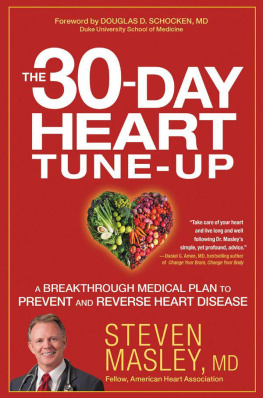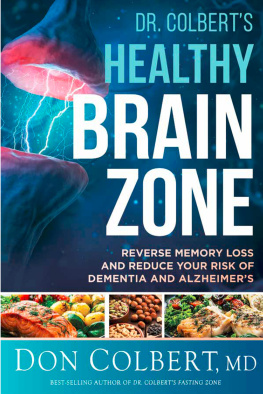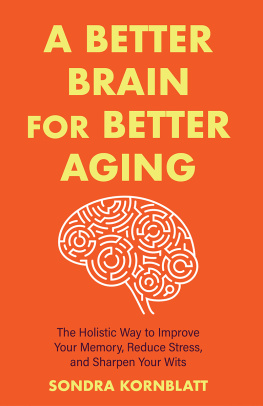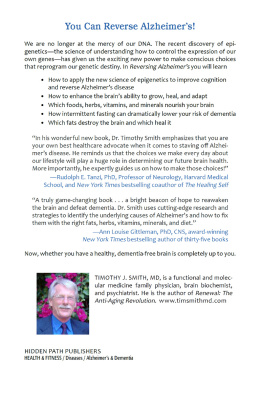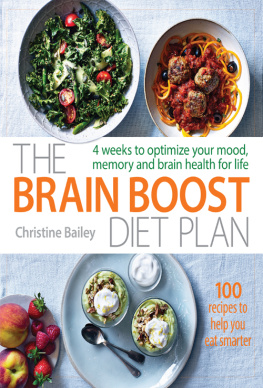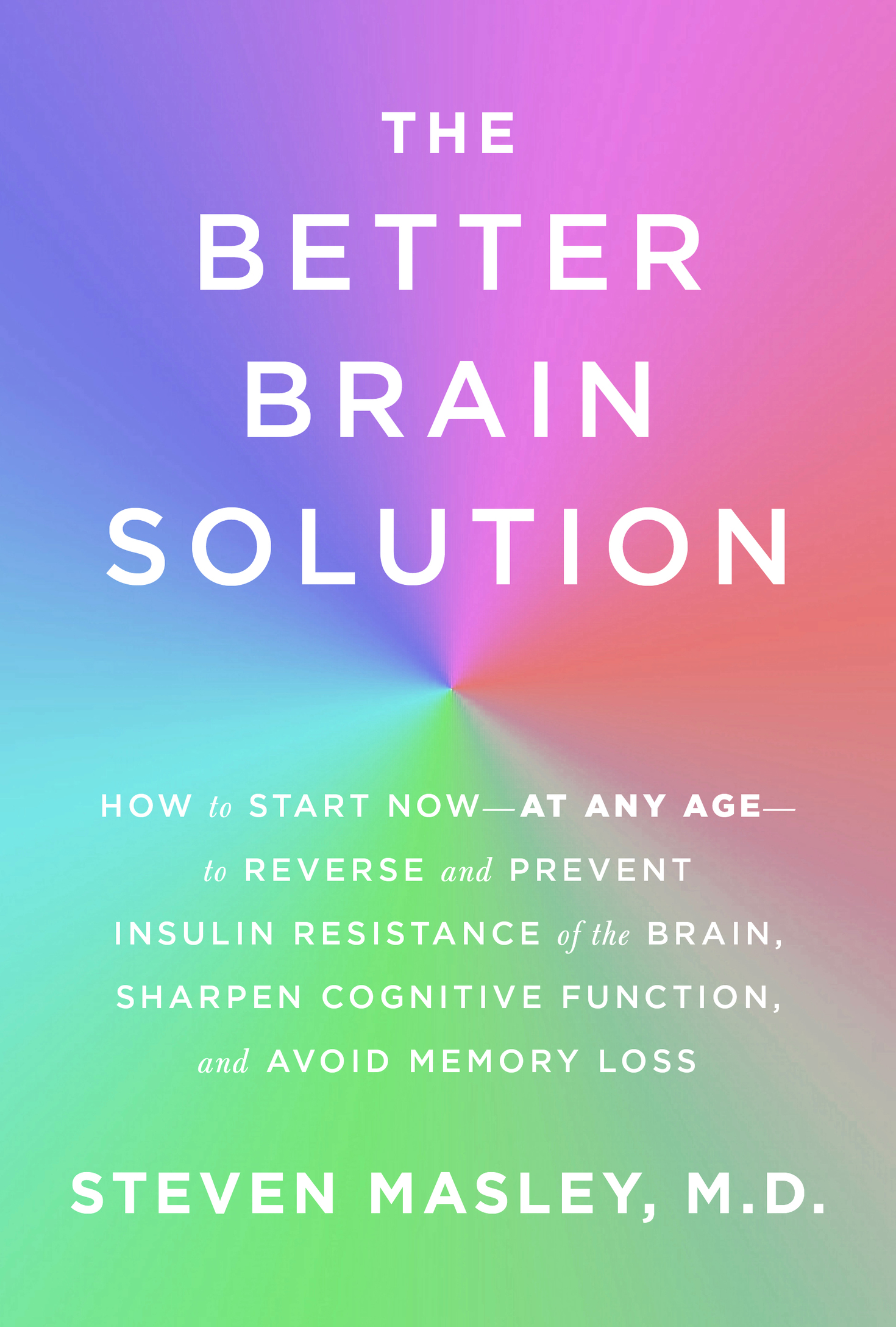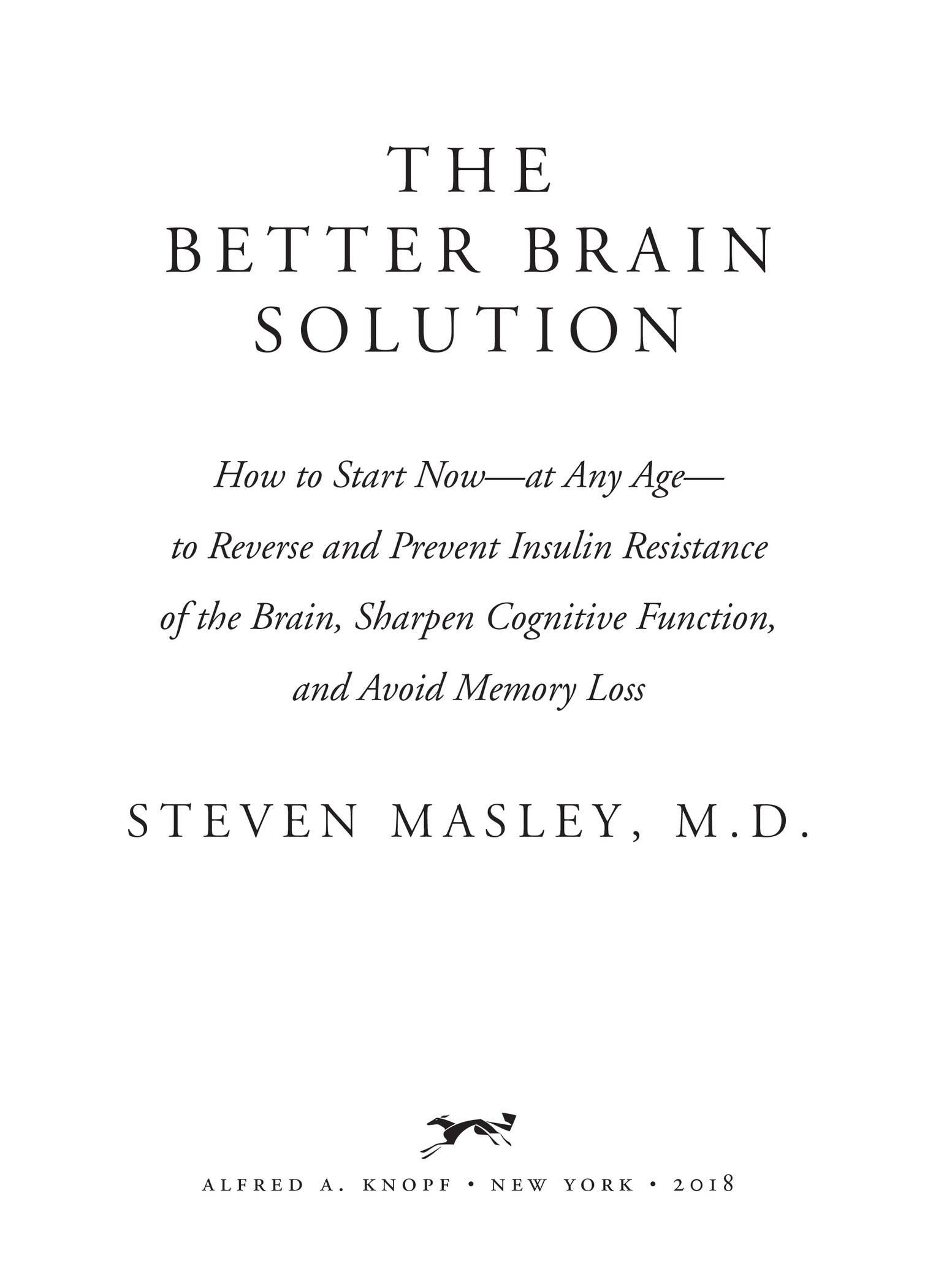Contents
ALSO BY STEVEN MASLEY
Smart Fat (with coauthor Jonny Bowden)
The 30-Day Heart Tune-Up
Ten Years Younger
THIS IS A BORZOI BOOK PUBLISHED BY ALFRED A. KNOPF
Copyright 2018 by Steven Masley, M.D.
All rights reserved. Published in the United States by Alfred A. Knopf, a division of Penguin Random House LLC, New York, and distributed in Canada by Random House of Canada, a division of Penguin Random House Canada Limited, Toronto.
www.aaknopf.com
Knopf, Borzoi Books, and the colophon are registered trademarks of Penguin Random House LLC.
Library of Congress Cataloging-in-Publication Data
Names: Masley, Steven, author.
Title: The better brain solution : how to start nowat any ageto reverse and prevent insulin resistance of the brain, sharpen cognitive function, and avoid memory loss / Steven Masley, M.D.
Description: New York : Knopf, 2018.
Identifiers: LCCN 2017016326 | ISBN 9781524732387 (hardcover) | ISBN 9781524732394 (ebook)
Subjects: LCSH: BrainPopular works. | NutritionPopular works. | Mental healthPopular works. | Self-care, HealthPopular works. | BISAC: HEALTH & FITNESS | Diseases | Diabetes. | HEALTH & FITNESS | Diseases | Nervous System (incl. Brain). | HEALTH & FITNESS | Diseases | Alzheimers & Dementia.
Classification: LCC QP376 .M368 2018 | DDC 612.8/2dc23
LC record available at https://lccn.loc.gov/2017016326
Ebook ISBN9781524732394
Cover image by Yulia Glam / Shutterstock
Cover design by Janet Hansen
v5.1_r1
a
I dedicate this book to my patients at the Masley Optimal Health Center, who teach me each day that the best way to prevent memory loss is through lifestyle changes that improve cognitive function and enrich quality of life.
CONTENTS
INTRODUCTION
If you could protect yourself from the illness you fear most, what would it be?
Cancer? Heart disease? When I ask my patients this question, I almost always get the same answer: memory loss.
The brain is the very essence of your being. Every day it fires up all your senses, brings you pleasure (and yes, pain), catalogues a lifetime of memories, solves an array of problems, and connects you to the world around you. It makes you human. You can live with a mechanical joint, without kidneys on dialysis, with a transplanted heart, liver, or other organ, but nothing can substitute for a healthy brain. Without memory, we require constant care from family, friends, or total strangers, and we become a burden on the people we love the most. Like many other physicians, I put memory loss at the top of the list of conditions I wish we could permanently vanquish.
Despite billions of dollars of research, weve had no significant cures for medical problems such as dementia and Alzheimers disease (the most common form of memory loss). In the United States, we now have nearly 6 million people diagnosed with Alzheimers disease, and the annual bill for dementia care now tops $215 billion, more than is spent on cancer or heart disease. The number of victims is predicted to increase 200 percent by 2030, and to increase 400 percent by 2050thats 24 million Americans with this diseasewhen the cost of Alzheimers care will exceed $1.5 trillion yearly. On a global level, the numbers are even more staggering. In 2010 there were 36 million people with Alzheimers; in 2050, at its current rate, there will be 115 million men and women worldwide with disabling memory lossa 320 percent increase.
On a more personal level, if you have experienced a loved one struggling with dementia, you will undoubtedly agree its a disease that unravels the life of the sufferer and upends the lives of family and friends as well. Its costs are far more than financial, and it can last for years. With Alzheimers disease, which accounts for up to 70 percent of all dementias, the end result has been the same. Up until now, it has always been fatal, as we have not had any effective treatments or cures.
In fact, were facing two urgent epidemics right now: escalating rates of disabling memory loss, and rapidly increasing rates of diabetes and pre-diabetes. As research has now proven, these conditions are intimately connected. But here is a life-changing fact: Diabetes and memory loss are largely preventable.
Before I tell you more, let me explain how my work as a heart guy led me to the brain. I dont think of myself that way, but because Im known for my work in preventing and reversing heart disease, some people do. (Im the author of The 30-Day Heart Tune-Up and created one of the all-time most popular health programs created for PBS, called 30 Days to a Younger Heart.) Its true that as a physician and a nutritionist, Ive dedicated much of my professional life to showing people how to stop and reverse heart disease. Now I want to help prevent another looming health crisis.
Thirty years ago as a medical resident, I focused on cardiovascular research, though I ultimately chose to become a family physician. I wanted to help heal the whole person, not just the heart, and I was more interested in preventing people from developing heart disease than in treating heart disease itself. Decades later, when I designed my medical clinic, the Masley Optimal Health Center, to assess and optimize aging, I knew that cardiovascular disease wasand still isthe #1 killer of Americans. I wanted to create treatments that would help with its prevention, and in some cases, its complete reversal.
Weve come a long way in our fight against heart disease, and today its possible to prevent 90 percent of all heart attacks and strokes, if people follow a simple plan like mine. If someone comes to me with existing heart disease, Ive also been able to help shrink their arterial plaque, the dangerous inflammatory substance that builds up in the arteries as a result of diet and other lifestyle factorsand in the process prevent memory loss.
Ive studied arterial plaque growth and its connection to various lifestyle factors that accelerate or reverse this deadly condition. Ive presented my data to the American Heart Association, the American College of Nutrition, and the American Academy of Family Physicians, and my book and PBS program are based on my findings.
Simply put, arterial plaque growth leads to heart attacks, strokes, and sudden death. We know it causes heart disease, but it belongs in this discussion about the brain because it has emerged as one of the most powerful predictors of memory loss and cognitive dysfunction, including Alzheimers disease. Longitudinal data collected in my clinic powerfully illustrates this link between arterial plaque growth and the loss of cognitive function and brain speed.
Heres another key connection between arterial plaque growth and brain health decline: both are closely linked to poor blood sugar control, which is triggered not only by diet but by a variety of lifestyle choices. Uncontrolled blood sugar isnt just an issue for those with diagnosed diabetes. Many people with abnormal blood sugar levels, including those who are insulin resistant and pre-diabetic, seek a doctors care only when theyre in crisis. (Insulin resistance is the bodys inability to respond to insulin, the hormone that regulates blood sugar levels.) But tens of millions of Americans are utterly unaware of their elevated blood sugar levels, caused by diet and lifestyle, and they are at much greater risk for advanced memory loss.


